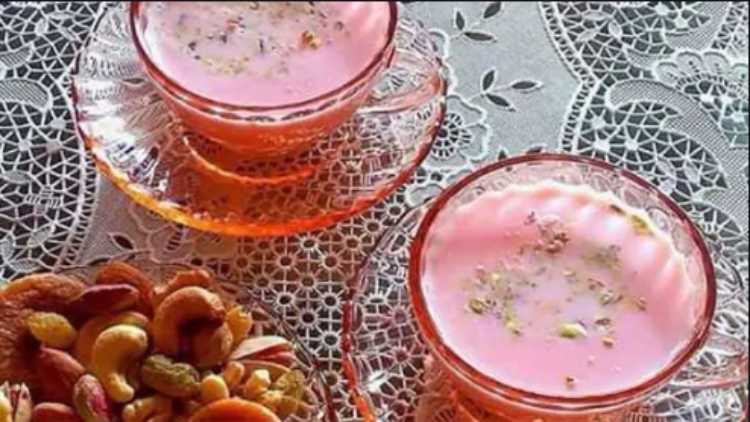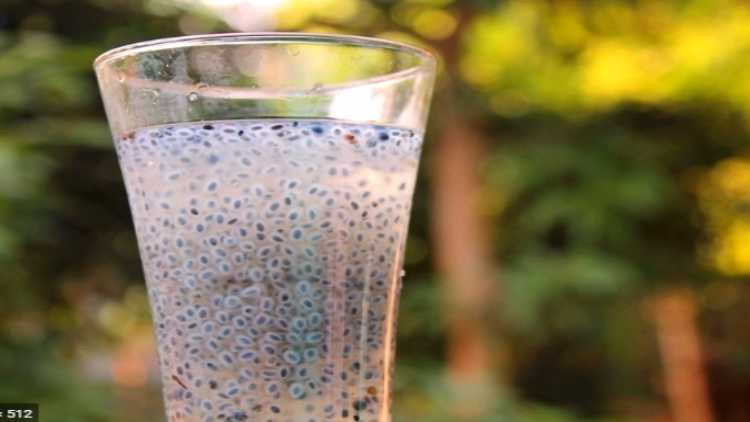
Ehsan Fazili/Srinagar
The pink salt tea with dollops ofmalai is a must-have beverage for the Muslims in Kashmir both after thesehri and the Iftar meals during the Holy month of Ramazan.
Called nun chai (salt tea), the tea is a favourite beverage in the Himalayan belt including Ladakh. It’s generally considered to help digestion after one takes a heavy meal. In Ladakh, this tea is made with yak milk and the families add yak butter to it. There the same nun chai is called gur gur chai.
Though for two consecutive years the Covid restrictions have adversely affected the usual hustle and bustle and shopping spree in market places during the fasting month, there is hardly any change in the nature of food varieties people eat during this month in the Valley.
Another unique and a must have food for Ramazan in Kashmir is the sweet basil called Babribyol drink that is used for breaking the fast at the time of Iftar along with a mandatory date.
The Babribyol sharbat is a concoction of sweetened milk, rose water or Rooh Afza syrup, soaked sweet basil seeds that are grown locally. In official Iftar parties, slivers of dried or fresh coconut are added to it to give that extra taste and bite.
“It breaks the thirst….. refreshes the whole body and mind”, is a common feeling. Every member in the family gets a glass of Babribyol, which is prepared about an hour before the Iftar time every day.

The Babribyol drink
Young children, not keeping the fast, also rush to get their glass of the drink as all members ceremoniously assemble for the prayers led by the head of the family to seek the welfare of the family and humankind. To add to the joy of the children, it is followed by they being offered a glass of Babribyol drink.
A generous cook at home can add anything to it to give a fresh twist.
Kashmiris feel the Babribyol sharbat has a cooling impact on the body after the day-long fasting.
Kashmiri prefer mutton and chicken and though fresh-water fish is available it’s not preferred for the meal. Mutton, chicken and local vegetables are cooked and served with the staple as rice. The curd is a mandatory item, again, for cooling impact.
Though dates don’t grow locally, all global varieties are available in the market and like the Muslims in the rest of the world, Kashmiris too break their fast with a date and the Babribyol drink.
Though these days it’s happening less due to the Covid lockdown, the practice in a Kashmiri household is to distribute at any time of the day, handfuls or packets of dates to the visitors.
Another must-have for Kashmiris in both the meals is Haakh, the greens called Collard greens. This simple green leafy vegetable cooked without spices has become synonymous with Kashmiri cuisine. The humble Haakh completes any meal on formal or informal occasions for people of any religion.
Also the local baker called Kandur bakes special flat bread for the Ramazan to be eaten with nun chai. This is the only element of wheat eaten in a Kashmiri family during this period.
